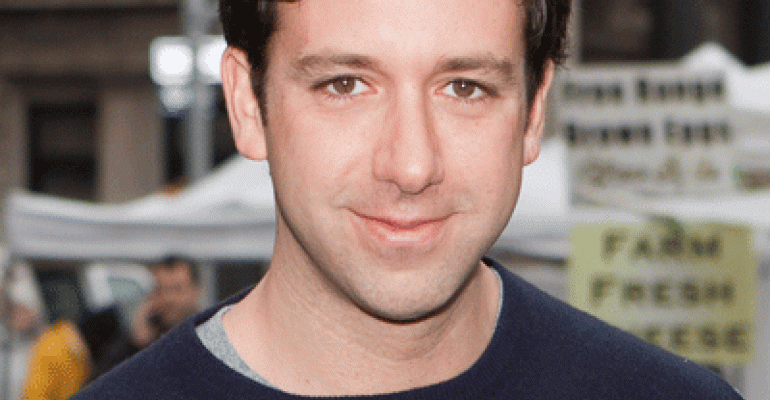With 11 years of measured chain growth under their belts, Tony Shure and Colin McCabe are accelerating expansion of their 15-unit fast-casual concept, Chop’t Creative Salad Co.
The two cofounders, who began formulating plans for the concept while still in college, anticipate opening five or six new restaurants this year in the New York and Washington, D.C., areas, where the chain already has a presence. And while the New York-born and -raised partners initially focused on sites in urban business districts, they have since broadened their horizons to include the suburbs as well.
Chop’t — a 2008 NRN Hot Concept! award winner — showcases a range of innovative salads and “salad sandwiches” that feature an international palette of ingredients like cous cous, harissa, quinoa, edamame, grilled Freebird chicken, roasted shrimp, cotija cheese and roasted tomatoes. Two central commissaries in New York and D.C. supply the restaurants.
Chop’t generates an average per person check of about $10 and average unit volume of about $2 million.
Shure recently discussed the brand with Nation’s Restaurant News.
Can you talk about your expansion plans?
We’re building our 16th store right now. We’re pretty evenly distributed between New York and D.C. We started our crawl into the suburbs last year [in June 2011]. The Rye, N.Y., location [in suburban Westchester County] is one of our most successful stores, so all options for another market are open — in the suburbs of New York or D.C., or even Philadelphia.
What kind of sites are you looking for?
We’re looking for something with good parking, maybe in an appealing retail center. We want to go to places where we see our customers — health-minded, active, young.
Right now all locations are company owned. Any plans to franchise?
No franchising, no licensing. But that doesn’t mean never. I think first we need to be in a place where we could truly support our franchisees. Meanwhile, growth is self-funded.
All of your restaurants are supplied through central commissaries. Does that process impact freshness at all?
[Commissaries provide] a point of control we might not have otherwise. And not everything is [fabricated] at the commissary. Lettuces are delivered whole to each store and broken down [at service]. Other things are done at store level too, like shredding cheese. Certain things just have to be done at the last minute. And I think that if we had 15 kitchens, the food might be less fresh. It’s just easier for quality control with the commissaries.
At lunch you have lines out the door. How do you deal with the rush and how long do people have to wait?
The long lines really don’t mean a long wait. If there is a line to the door, it might only mean a wait of five or six minutes before you get to the counter. Then it’s just a minute or two to make a salad — half of the people customize their own, while half order created salads. But it’s an assembly line process.
We’re fast. We have a built-in sense of urgency. Both Colin and I are from New York, and we know that people just don’t want to wait for anything here.
In New York, you’ve been dealing with mandatory menu labeling for a while. How has that affected business?
People can eat as healthy as they want here. We post the calories, so people can create a salad that’s high in calories or light. For some people that means ordering edamame; for others, it’s fried chicken. Either way, it’ll be delicious. It’s always been our intention to be as healthy as the customers want us to be.
Contact Paul Frumkin at [email protected].





